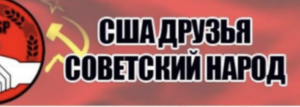I don’t agree with everything said, but these are all thought-provoking pieces about the Russia/Ukraine war, the events leading up to the full-scale invasion, tensions within Ukraine and other related topics. I’ve included a mixture of views, though I have consciously excluded work by Russian or Ukrainian nationalists, all state-run media, and anything that actively promotes the Russian invasion. (Admittedly, my links lean toward being critical of the Ukrainian government, but that’s only because most anglophone media is… very much uncritical of its policies.)
Socialists and the War in Ukraine, League for the Fifth International, Workers’ Power (probably the closest thing I’ve found to my position—yes, arm Ukraine to fend off Russian aggression, but don’t support the government’s policies)
The Rise and Role of Ukrainian Ethnic Nationalism, by Anatol Lieven, The Nation
Persecuting Ordinary Russians Won’t End Putin’s War, by Branko Marcetic, Jacobin
Answer to the article “War and Ukraine’s Anarchists,” by the Combat Organisation of Anarcho-Communists (in Russian—I used Google Translator for most of it)
Putin in anti-trans, anti-gay drive, by Rhodri Evans, Workers’ Liberty
The unique extra-parliamentary power of Ukrainian radical nationalists is a threat to the political regime and minorities, by Volodymyr Ishchenko, Foreign Policy Centre
Gone Rogue: The Left and Ukraine, by Joseph Grosso, CounterPunch
Multipolarity, the Mantra of Authoritarianism, by Kavita Krishnan, Z Network
Rampant Russophobia takes us down a dark path, by Anatol Lieven and George Beebe, Responsible Statecraft
What We Lose When We “Cancel” Russian, by Caroline Tracey, Zócalo Public Square
Israel lobby group ADL rehabilitates Hitler’s accomplices in Ukraine, by Ali Abunimah, Electronic Intifada
Russia, Ukraine, and Lasting Peace in Europe, by Nicolai Petro, Transatlantic Policy
The Tragedy of Ukraine, by Nicolai Petro, The Transnational
